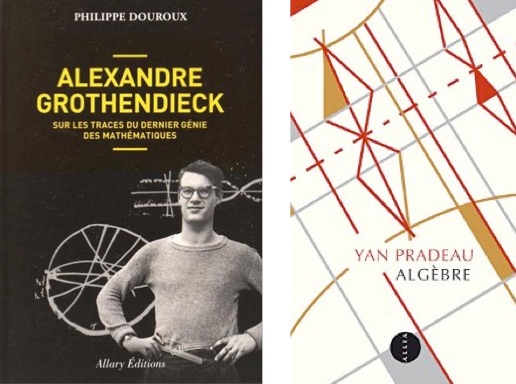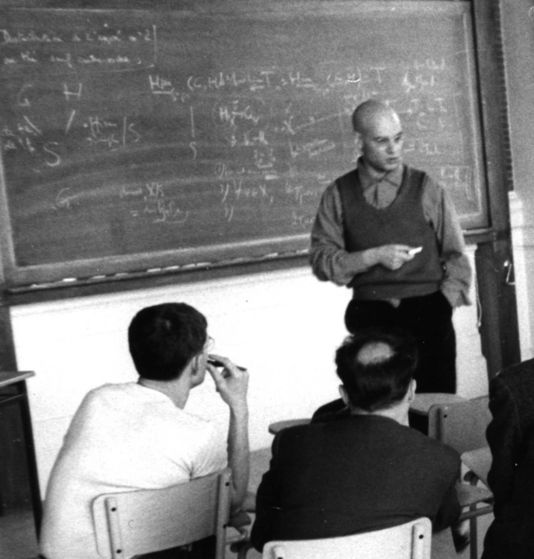What link is there between Andrew Grove (the previous article) and Alexandre Grothendieck? Beyond their common initials, a similar youth – both were born in the communist Eastern Europe they left for a career in the West) and the fact they have become icons of their world, they just represent my two professional passions: startups and mathematics. The comparison stops there, no doubt, but I’ll get back to it.
Two books (both in French) were published in January 2016 about the life of this genius: Alexander Grothendieck – in the footsteps of the last mathematical genius by Philippe Douroux and Algebra – elements of the life of Alexander Grothendieck by Yan Pradeau. If you like mathematics (I should say the mathematical science) or even if you do not like it, read these biographies.
I knew as many others about the atypical route of this stateless citizen who became a great figure of mathematics – he received the Fields Medal in 1966 – and then decided to live in seclusion from the world for over 25 years in a small village close to the Pyrenees until his death in 2014. I also have to confess that I knew nothing of his work. Reading these two books shows me that I was not the only one, as Grothendieck had explored lands that few mathematicians could follow. I also found the following stories:
– At age 11, he calculated the circumference of the circle and deduced that π is equal to 3.
– Later, he reconstructed the theory of Lebesgue measure. He was not 20 years old.
– A prime number has his name, 57, who nevertheless is 3 x 19.
Yes, it is worth discovering the life of this illustrious mathematician.
The reason for the connection I made between Grove and Grothendieck is actually quite tenuous. It comes from this quote: “There are only two true visionaries in the history of Silicon Valley. Jobs and Noyce. Their vision was to build great companies … Steve was twenty, un-degreed, some people said unwashed, and he looked like Ho Chi Minh. But he was a bright person then, and is a brighter man now … Phenomenal achievement done by somebody in his very early twenties … Bob was one of those people who could maintain perspective because he was inordinately bright. Steve could not. He was very, very passionate, highly competitive.” Grove was close Noyce in more ways than one, and extremely rational and according to Grove, Noyce was too lax! Grothendieck would be closer to Jobs. A hippie, a passionate individual and also somehow self-taught. Success can come from so diverse personalities.
Last point in common or perhaps a difference. The migration. Grove became a pure American. Grothendieck was an eternal stateless, despite his French passport. But both show its importance. Silicon Valley is full of migrants. I often talk about this here. We know less that what is called “the French school of mathematics” also has its migrants. If you go to the French wikipedia page of the Fields Medal, you can read:
Ten “Fields medalists’ are former students of the Ecole Normale Superieure: Laurent Schwartz (1950), Jean-Pierre Serre (1954), René Thom (1958), Alain Connes (1982), Pierre-Louis Lions (1994) Jean-Christophe Yoccoz (1994), Laurent Lafforgue (2002), Wendelin Werner (2006), Cédric Villani (2010) and Ngo Bao Chau (2010). This would make “Ulm” the second institution after the ‘Princeton’ winners, if the ranking was the university of origin of the medal and not the place of production. Regarding the country of origin, we arrive at a total of fifteen Fields medalists from French laboratories, which could put France ahead as the formative nations of these eminent mathematicians.
But in addition to Grothendieck, the stateless, Pierre Deligne, Belgian, had his thesis with him, Wendelin Werner was naturalized at the age of 9 years, Ngo Bao Châu the year he received the Fields Medal, after doing all his graduate studies in France, and Artur Avila is Brazilian and French … One could speak of the International of Mathematics, which might not have displeased Alexander Grothendieck.



